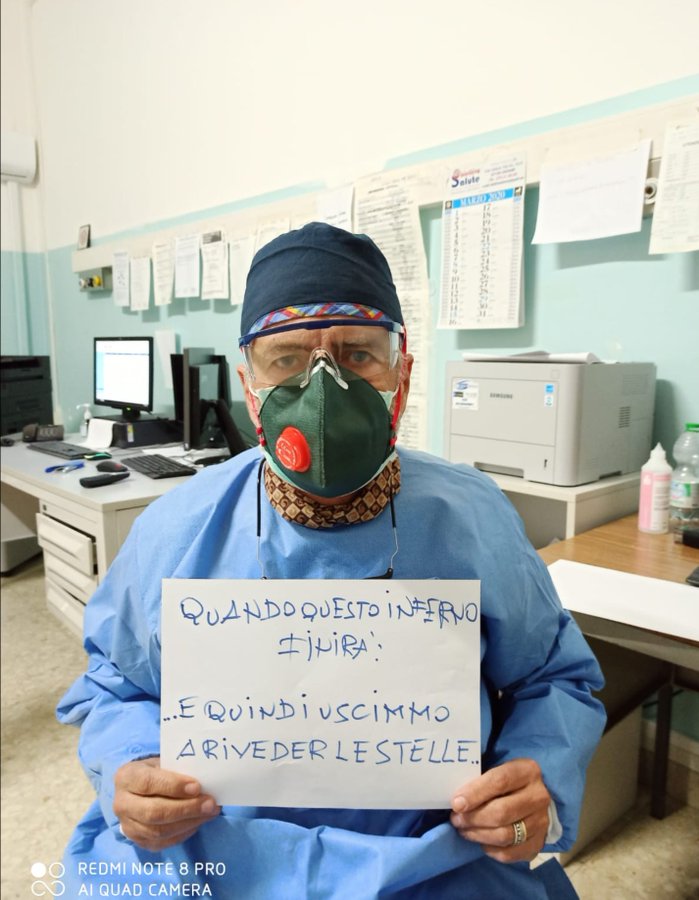In C.H.
Sisson’s translation of The Divine Comedy (1980), Canto XXXIV, line 139
reads: “And then we emerged to see the stars again.” Optimism at the moment
seems a paltry word but the doctor’s gesture is stirring. Recall that
Dante has just seen the three-faced Satan trapped waist-deep in the frozen
lake. From his mouths, eternally devoured, hang Brutus, Cassius and Judas
Iscariot. Dante is speechless in Hell. Sisson translates the opening tercets of
Canto XXXII:
“If I could
write in harsh and raucous verses,
As would be
suitable to the sad pit
On which all
the other rocks weigh down,
“I could
press out the juice of my conception
More fully,
but because I have not that skill,
Not without
fear I bring myself to speak;
“For it is
not a matter to take lightly,
Describing
the lowest point in the universe,
Not
something to be done in baby-talk.”
And later,
in Canto XXXIV, on first sighting Satan:
“How frozen
and how faint I then became,
Do not
enquire, reader, description is useless,
For any
speech would be inadequate.”
I’m always
struck by Dante’s refusal to linger on the scene. It’s as though he has taken his snapshot of the horror and Virgil hurries him along. Why
contemplate what is incomprehensible? In a modern horror film the camera would
remain focused on Judas: “. . . at times his spine / Was left stripped of every
scrap of skin.” Sisson on the departure from Hell:
“We mounted
up, he first and I second,
So that I
saw some of the lovely things
That are in
the heavens, through a round opening;
“And then we
emerged to see the stars again.”
It’s essential
to remember that Dante concludes each section of his Commedia with a view
of the stars. Here is Canto XXXIII, lines 144-145 of Purgatorio: “. . .
and so I was / Clear and ready to go up to the stars.” And Canto XXXIII, lines
142-145 of Paradiso:
“At this
point high imagination failed;
But already
my desire and my will
Were being
turned like a wheel, all at one speed,
“By the love
which moves the sun and the stars.”
[In his 2005 review of Sisson’s translation of Lucretius’ De rerum natura, Eric
Ormsby judges Sisson’s Dante “the best available in English.”]

1 comment:
Do you have an opinion on Dorothy Sayers's translation?
Post a Comment